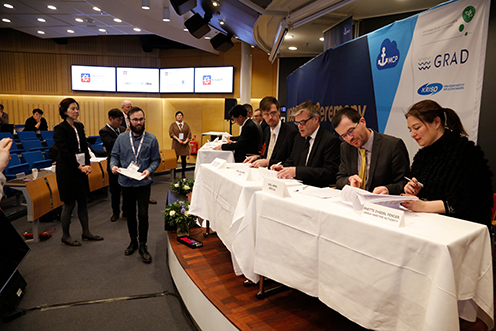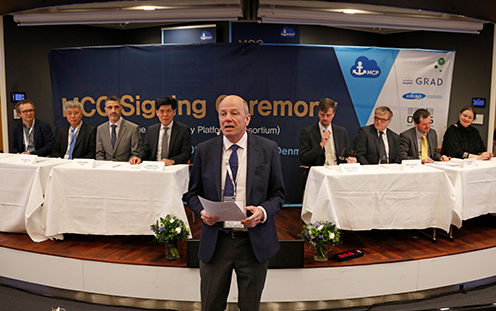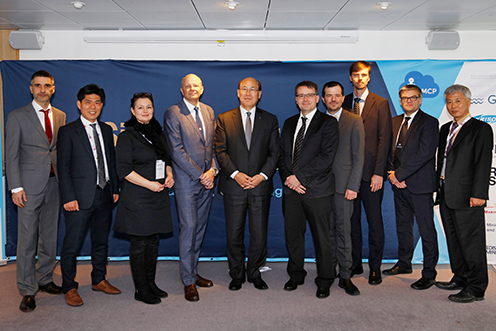New global maritime platform will improve electronic communication at sea
The University of Copenhagen becomes a main actor and signatory to a new platform that will enable a better infrastructure for the maritime sector. The Maritime Connectivity Platform will establish a common infrastructure for efficient, secure, reliable and seamless electronic information exchange among maritime stakeholders. Nearly 100 organizations worldwide have signed up.

On the 8 February 2019, the Maritime Connectivity Platform Consortium (MCC) was officially launched. Representatives of the initial consortium took part in a
A new standardized communication system is coming into practice
For many years the maritime sector has suffered from the lack of common communication and internet standards. Parallel systems have existed, but the major stakeholders have until recently not succeeded to unify the respective initiatives into a common protocol or practice.
With the signing of the Maritime Connectivity Platform (MCP) around 100 maritime authorities and
The initial consortium

Front: Francis Zachariae, Secretary general, IALA, giving the ceremonial introduction. From left sitting at the desks: Mads Nielsen, University of Copenhagen, Sun Young Kim, Korean Research Institute Ships and Ocean engineering, Paul Williams, General Lighthouse Authorities, UK, Sunbae Hong, Korean Ministry of Oceans and Fisheries; Per Setterberg, Swedish maritime administration; Thomas Christensen, SMART-Navigation Project Office; Axel Hahn, OFFIS and Universität Oldenburg, Germany; Anette Dybdal Fenger, Director of Business Intelligence and Development, Danish Maritime Authorities.

E-navigation and digitalization of the maritime sector on the future agenda
In 2015, three large research projects from Europe and Korea respectively began to join forces and collaborate on the common use and further development of the technology. The projects were: ‘EfficienSea2’ and ‘STM Validation’ funded by the EU and the ‘SMART Navigation project’ funded by the Korean government. An MCP testbed was established which has now been running for several years and will continue to do so under the new platform.
The MCP initially addresses the goals of the e-navigation initiative of the International Maritime Organisation IMO, but the long term objective is to support the
Contact
Thomas Christensen, SMART-Navigation Project Officer, thomas@dmc.international
maritimeconnectivity.net
Michael Kirkedal Thomsen, assistant professor, Department of Computer Science, University of Copenhagen, m.kirkedal@di.ku.dk, regarding the technical platform.
Facts about the MCC platform
The communication platform relies on the Internet concept of Web Services with special services for identity management and service management supporting the IMO concept of Maritime Services.
The MCP supports actors in the use of digital services to exchange public as well as private information. Potential commercial and non-commercial institutions can become providers of the MCP using their own instance of the MCP.
The MCC is established as a neutral and independent consortium of interested parties. It will act as coordinator for the provision of guidelines and standards. The MCC will adopt the open structure of the World Wide Web Consortium (W3C). Interested parties are encouraged to join MCC initiatives and bring their own visions and competencies.
Read the press release issued by the Consortium 8 February 2019.
